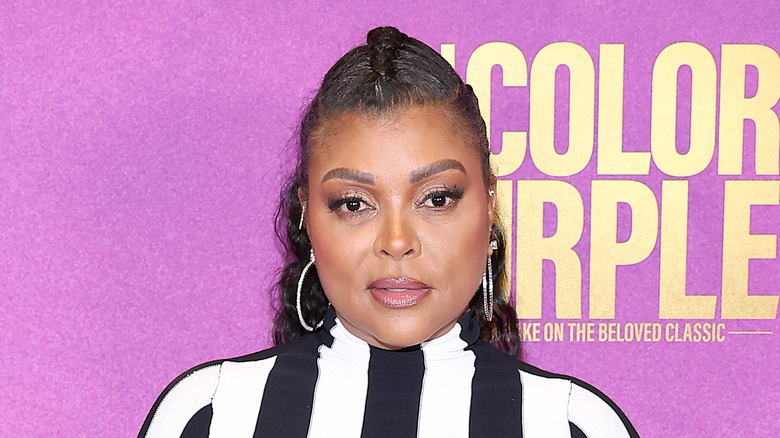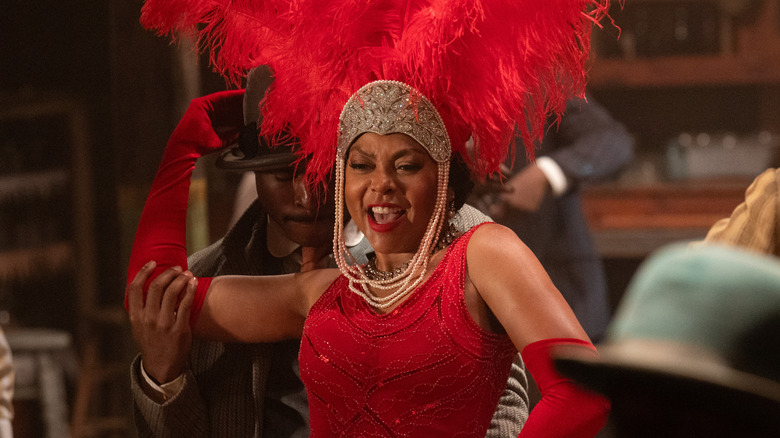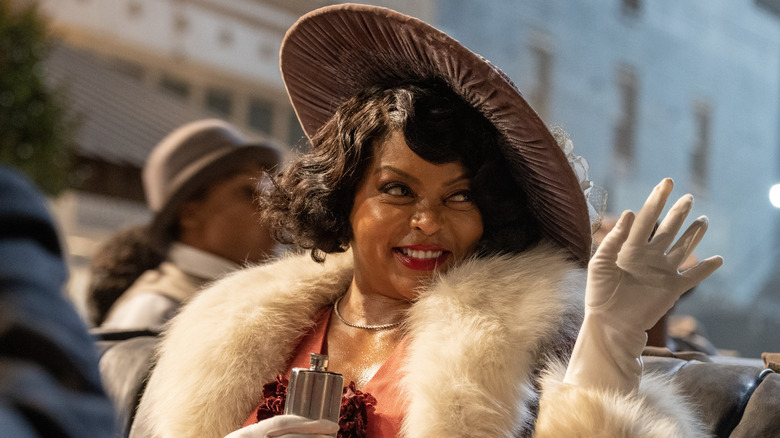The Real Reason Taraji P. Henson May Quit Acting
Prolific film and television actor Taraji P. Henson is making it known that she's so disgusted with pay inequality in Hollywood that she is ready to leave acting behind.
Henson, who has amassed over 70 screen credits since her debut in 1997, got emotional while discussing how she is underpaid during an appearance on "Gayle King In the House" on SiriusXM. "I'm just tired of working so hard, being gracious at what I do [and] getting paid a fraction of the cost. I'm tired of hearing my sisters say the same thing over and over. You get tired," she said. "I hear people go, 'You work a lot.' Well, I have to. The math ain't math-ing. When you start working a lot, you have a team. Big bills come with what we do. We don't do this alone. It's a whole team behind us. They have to get paid."
Henson scored guest turns on TV series such as "Smart Guy" and "Felicity" before making inroads in showbiz with roles on the show "The Division" from 2002 to 2004 and in the hit 2005 films "Hustle & Flow" and "Four Brothers." She also played a recurring character on "Boston Legal" from 2007 to 2008 before her pivotal role as Queenie in the 2008 fantasy drama "The Curious Case of Benjamin" earned her a best supporting actress Oscar nomination.
Henson says the amount of pay actors get is decieving
After a successful 2008-2009, where "The Curious Case of Benjamin Button" earned Taraji P. Henson additional accolades from the likes of the BET Awards, NAACP Image Awards, Critics Choice Awards, and SAG Awards, the actor's star status shot into the stratosphere. In the years since, Henson has starred in the hit series "Person of Interest" and "Empire." As for movies, she headlined the best picture Oscar nominee "Hidden Figures" and the movie musical version of "The Color Purple."
Speaking with Gayle King in support of "The Color Purple," Henson explained how the numbers are deceiving when hearing about how much actors get paid. "When you hear someone go, 'Such and such made $10 million,' that didn't make it to their account," she said. "Off the top, Uncle Sam is getting 50%. Now have $5 million. Your team is getting 30% of what you gross, not after what Uncle Sam took. Now, do the math."
Elaborating, Henson said the process of trying to reach for the top only to find herself starting anew at the bottom has left her exhausted. "I'm only human. Every time I do something and break another glass ceiling, when it's time to renegotiate, I'm at the bottom again, like I never did what I just did, and I'm tired. I'm tired. It wears on you. What does that mean? What is that telling me? If I can't fight for them coming up behind me then what the f*** am I doing?"
Henson says race has played into the fight for equal pay
During her interview with Gayle King, Taraji P. Henson said the powers that be have repeatedly told her that Black performers' work doesn't play overseas, which has also exhausted her in the fight for equal pay. "Twenty-plus years in the game, and I hear the same thing, and I see what you do for another production, but when it's time to go to bat for us, they don't have enough money," she said. "They play in your face, and I'm just supposed to smile and grin and bear it. Enough is enough. That's why I have other [brands I work on] because this industry — if you let it — it will steal your soul. I refuse to let that happen."
The problem with pay in showbiz isn't the only issue Henson has been vocal about. Addressing the writers' strike and then-pending actors' strike against Hollywood's studios in July, she expressed concern for the industry personnel whose livelihoods were at stake. "What concerns me is the actors who may not be as financially stable as I am," the Oscar nominee told The Hollywood Reporter. "My heart goes out to the writers, people just want to work in this economy. You know, people just want to work. And I just hate that. It's all greed. Greed will be the end of humanity."
During her interview with THR, Henson also railed against the use of artificial intelligence in films and television, which was one of the sticking points during the SAG-AFTRA strikes. Henson said it was unfair for performers to work hard only to have a computer generate their likenesses.


